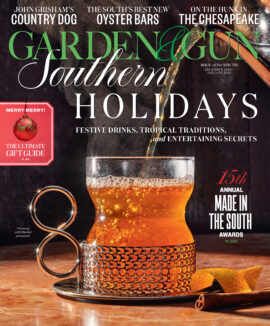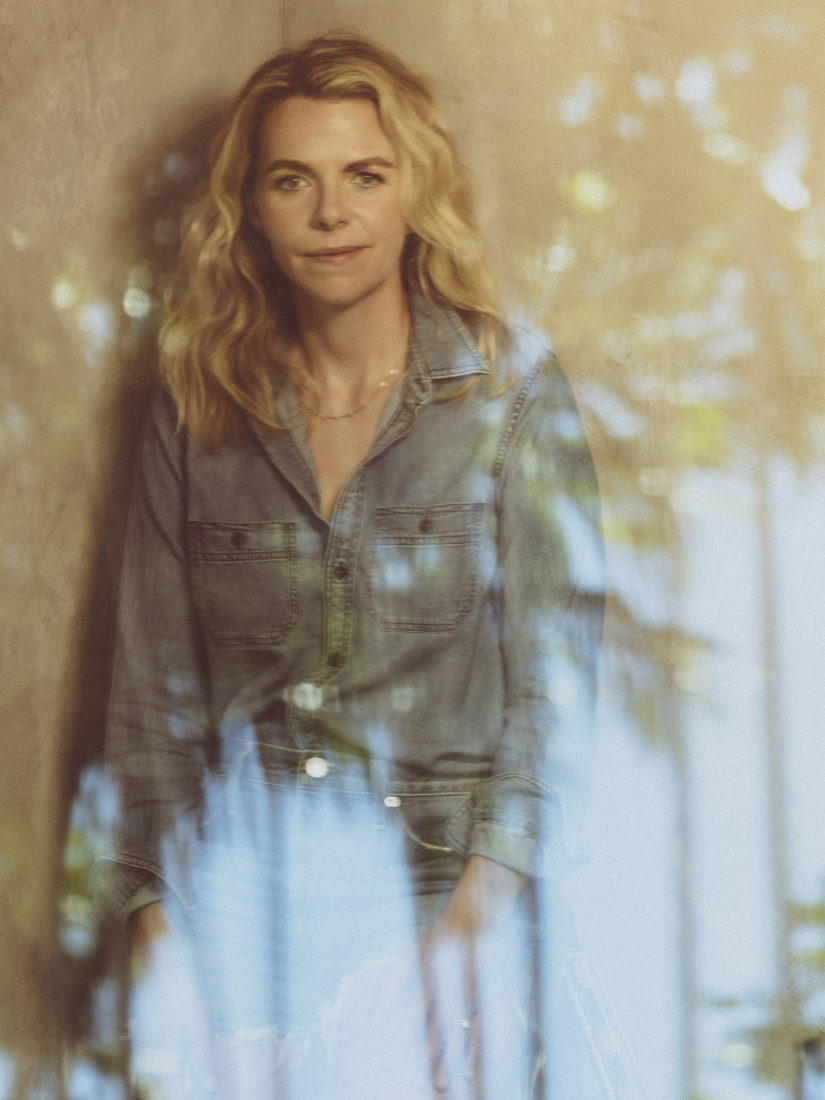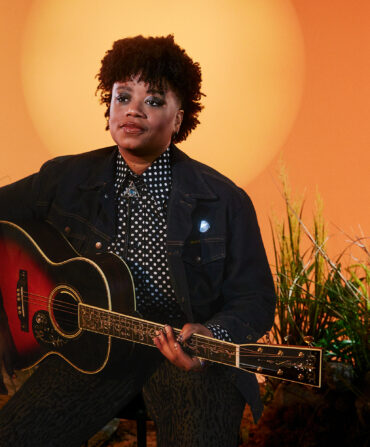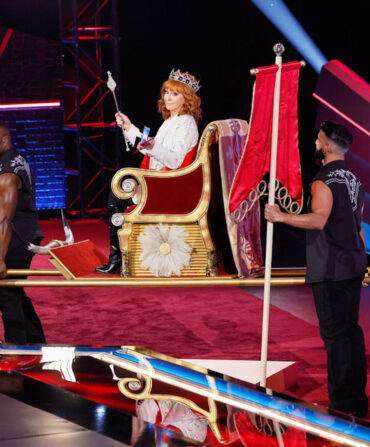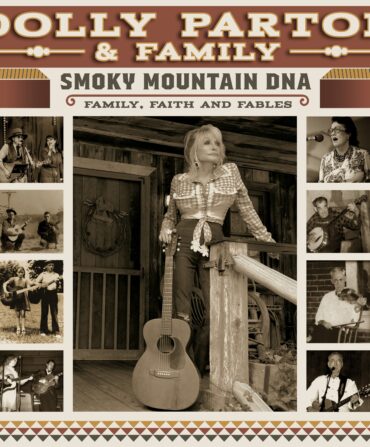“Wow, it sounds like I’m really obsessed with Orlando,” Aoife O’Donovan says with a laugh, just after listing, almost without pause, nearly a dozen local restaurants, running trails, markets, and gardens she’s come to love.
The Irish-American singer-songwriter, who was born in Boston, has spent the last year and a half living in Orlando and recorded her new album, Age of Apathy (out January 21) at Full Sail University in Winter Park. Although the record is O’Donovan’s first solo album in five years, she’s stayed plenty busy, contributing vocals and lyrics for Hiss Golden Messenger and Alison Krauss, among others, and collaborating with Sarah Jarosz and Sara Watkins in the trio I’m With Her. Produced by Joe Henry, known for his work with Bonnie Raitt and Rhiannon Giddens, the record highlights O’Donovan’s ethereal vocals and thoughtful songwriting. We chatted with O’Donovan about recording the new album; what she’s been reading, eating, and dreaming about recently; and how Florida shook up her creative process.
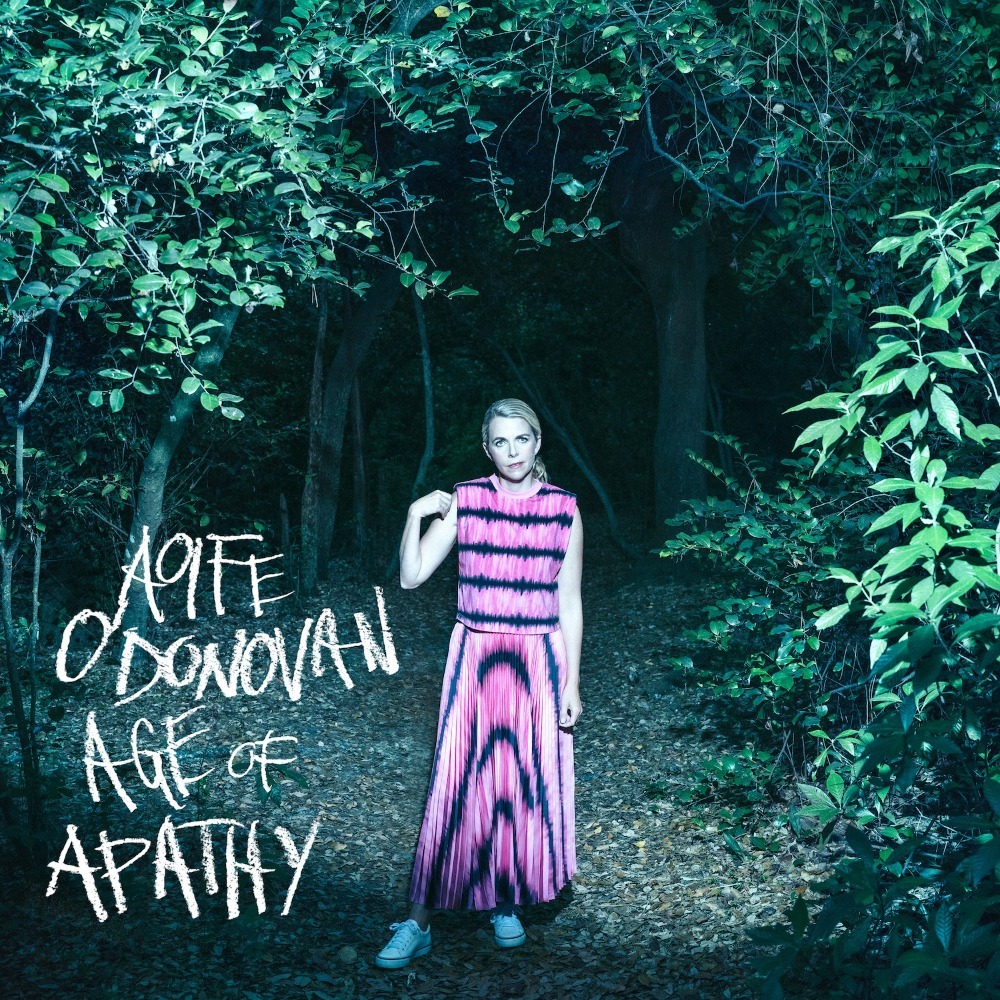
I know you’re a big reader. What have you been reading lately?
I’ve noticed that when I’m not on social media, I can get through a book better. I’ve been taking a break from Instagram and have been plowing through novels. Lauren Groff’s Matrix; the new Sally Rooney [Beautiful World, Where Are You]; The Night Watchman [by Louise Erdrich]—great storytelling in that one; Colson Whitehead’s Harlem Shuffle; [Salman Rushdie’s] The Satanic Verses. I used to re-read entire series like Anne of Green Gables and Harry Potter, and something I’ve loved about living in Orlando is the access to the public library. I rediscovered libraries when I had a kid. Now we go all the time, and they even deliver books to you. Oh, another one—I read this great book recently called Writers & Lovers by Lily King. It’s about the process of creating characters and a storyline and having to edit. I chuckled at the amount of stress it causes me and other songwriters to edit a three- or four-minute song when she’s talking about editing five hundred pages. This is something I’ve been thinking about while writing this new record—the process of writing, recording, and editing.
Tell me more about writing Age of Apathy.
It was time for me to look inward, to find these songs and give them a way out of me. When I started writing the album, I was thinking about the time that’s passed in the last twenty or so years—my adulthood and its beginning. My sophomore year of college, September 11 happened, and I drew a lot of similarities between how I thought at that time and how I felt at the beginning of the pandemic. How both events unleashed a sense of hopelessness in me that’s counter to who I am at my core—a positive and optimistic person. I don’t give too much credit to negative or dark feelings, and I don’t try to romanticize them for myself or for others. “Apathy” is the word I found to describe that thing that descended over my generation in the wake of 9/11 and as we went into this new world with big tech, the internet, and all this stuff that can feel like an onslaught.
The final song, “Passengers,” feels very different from the rest of the album.
That was intentional—the last lines are a call to arms to say “Take it in! Open your hearts.” I just imagined, while I was writing that song, coming up over a hill at sunrise. I thought about a picture in a book my daughter has, of looking out onto the earth and recognizing the beauty, how we have a chance to come back from all of this. The planet is not dead—the apocalypse has not happened. Even musically, that song is a release. It’s about how I had to let go of that darkness.
What was it like to record the album during the pandemic?
Full Sail University is incredible for musical production and engineering. It’s twelve minutes from my house. I would send a song to [collaborator and producer] Joe Henry, and then he would send it to another musician—a drummer or a bass player to add their parts. Then they’d come back to me before we sent the mix on to the next person. It was this very piecemeal way of creating music, but it gave the songs a completely different personality than if we had all been recording together. But I’m looking forward to playing all together when we take the album on the road in 2022.
How has your time in central Florida shaped you, and can you share some of your favorite places?
I spent the first six months of the pandemic feeling creatively dead. But when my family found a house here last September, we moved semi-permanently to Florida, and I realized I had more space to be outside, more space to really get into a writing zone. I live in a hundred-year-old house on a brick-lined street with beautiful old trees, and I can be in the wilderness in fifteen minutes.
I love driving out to the beach at Cape Canaveral National Seashore. Sometimes there’s never anyone else there, and it’s stunning.
There are so many trails where I love to run—Cady Way and Lake Baldwin. I also love kayaking at Wekiwa Springs. You can rent a kayak and paddle for eternity.
One of the great things about living in the South during the pandemic is that there is always outdoor seating year-round. We live on a strip with a lot of great Vietnamese and Chinese restaurants for scallion pancakes and dumplings. Our absolute favorite spot is Pizza Bruno. The Strand on Mills is also great for a classic burger and a beer. There’s an amazing cocktail bar called Sunroom, and right nearby, we stop by Black Rooster for tacos. One more: I have had a lot of coffee across America, and Lineage Coffee is right up there with the best.
There’s also a great marketplace called East End Market, and nearby, downtown Winter Park is the most cute and quaint place. There’s an amazing farmers’ market there, and I recently discovered the public pool. I pay $2, and it’s like my own private pool.
Tonight, I’m going to Leu Gardens—we have botanical gardens all around here. I did a video for Newport Folk Festival from Mead Botanical Garden, which is beautiful. I think coming from the Northeast—I lived most recently in Brooklyn—I had a preconceived notion of what Southern cities would be like. But I’ve been mesmerized by the culture and the vibe.
Listen to “B61” from Age of Apathy.

